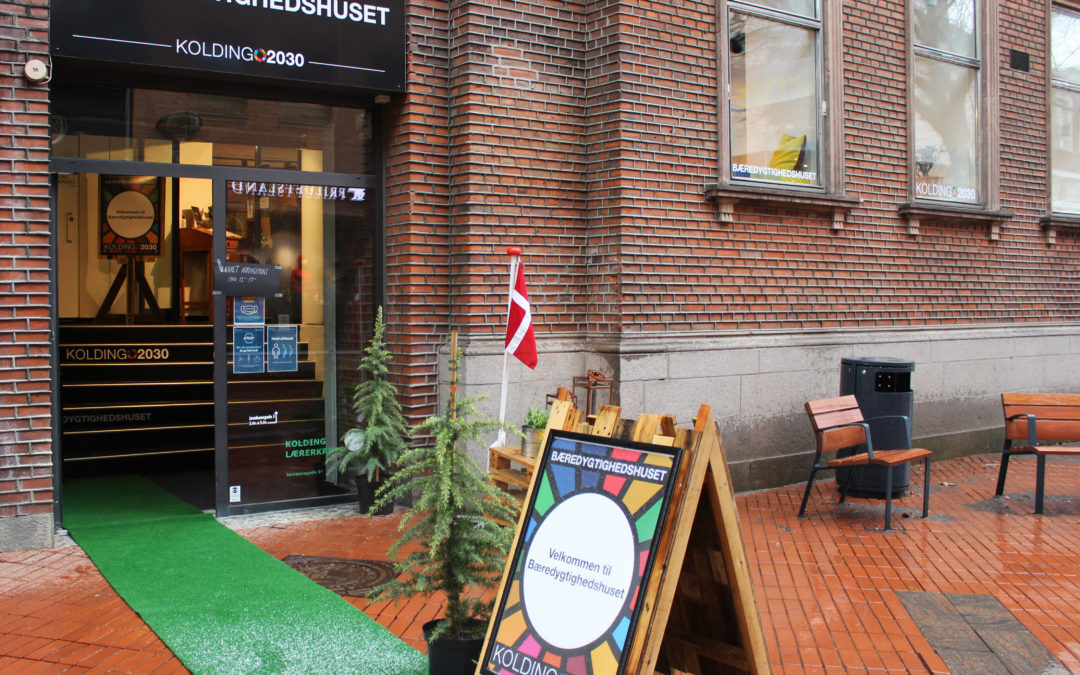Grand Opening
In the afternoon, the Mayor of Kolding came and “cut the tape” by planting the first seed. All other guests of the opening event followed him with this gesture to mark the day for the future and to make a reference to “we wish to see the sustainable initiatives grow”. Unfortunately, due to Corona restrictions, the city was only allowed to gather 25 people for the opening but there was a lot of communication on the different communication platforms about the event.
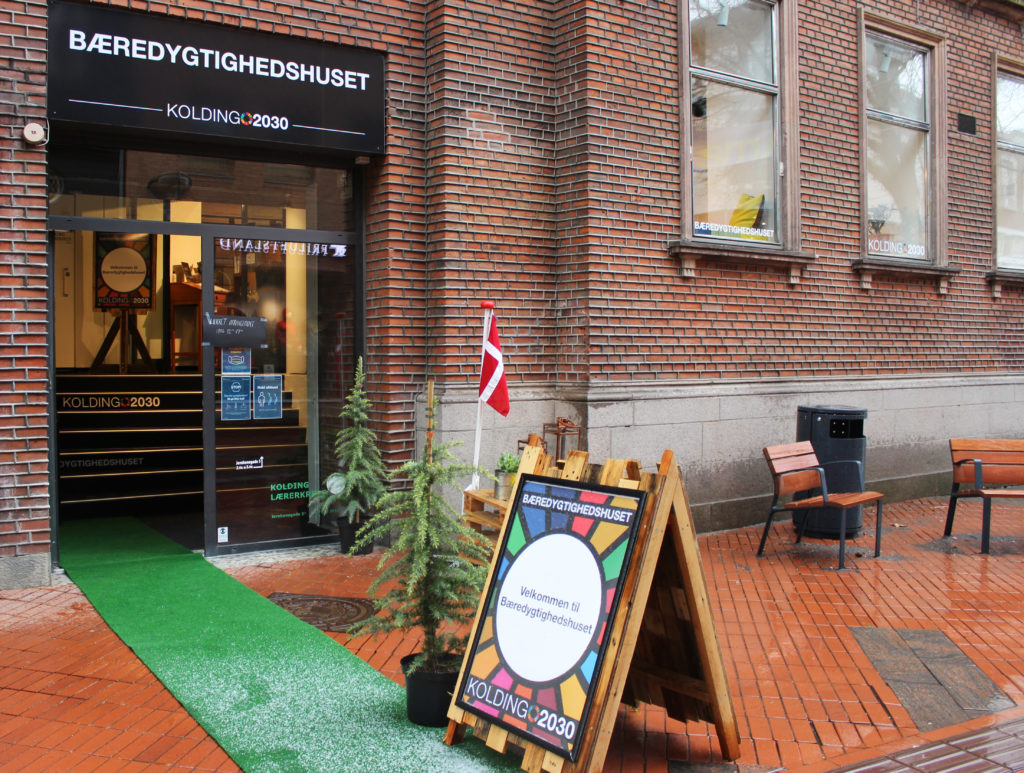
The entrance of the House with the Green Carpet (Credits: City of Kolding)
Meaning of the Sustainability House
The opening of the Sustainability House is a key milestone for the rollout of the Sustainability Strategy “Kolding 2030”, as this is where the strategy will “come to life”. The house will be open to the public and it is expected to accelerate the sustainable agenda and especially to invite citizens and stakeholders to come and join the journey. The role of the Sustainability House is centred around the Kolding 2030 measures, sustainability, inspiration and knowledge sharing. It has been designed together with students from SDU, the Design School and other sustainable fireballs. The ambition is to create a hub and ultimately a Living Lab for sustainable initiatives and people passionate about sustainability which will be value-adding and which will create synergy across the industries, businesses, organisations and the citizens.
Sustainability House and FUSILLI
The Sustainability House is very important for the FUSILLI projected (also named Food2030 in Kolding to link it to the Kolding2030 strategy and to make it more relatable), as the project is closely linked to many of the sustainability measures of the city. Also, the house will be a key showroom for the different FUSILLI measures and Living Labs as well as a great place for networking and to facilitate events and workshops. It will also be a core meeting space for the FUSILLI/FOOD2030 project as both the project members of the municipality and FUSILLI partner SDU will use the house on a weekly basis to meet internally, to meet with stakeholders and citizens, for workshops and information sharing.

FUSILLI/FOOD2030 at the Opening
- Interactive Carbon Footprint Food Pyramid: In the exhibition area, there was an interactive presentation of the Carbon Footprint Pyramid in terms of a great visualisation of the pyramid and an exercise where people had to place a selection of food spices within the category (Green: 0-2kg CO2 per kg , Yellow 2-8 kg CO2 per kg and Red 8-20kg CO2 per kg) they believe the piece of food belongs to in terms of its carbon footprint.
- The taste of future food: Two of Kolding’s Food Companies Source Technology and EasyFood joined forces and served a take on “the food of the future” consisting of delicious plant-based snacks (Plant-Nugget Burger, “Plant-Chicken” Sandwich and plant-balls), which got a very positive response.
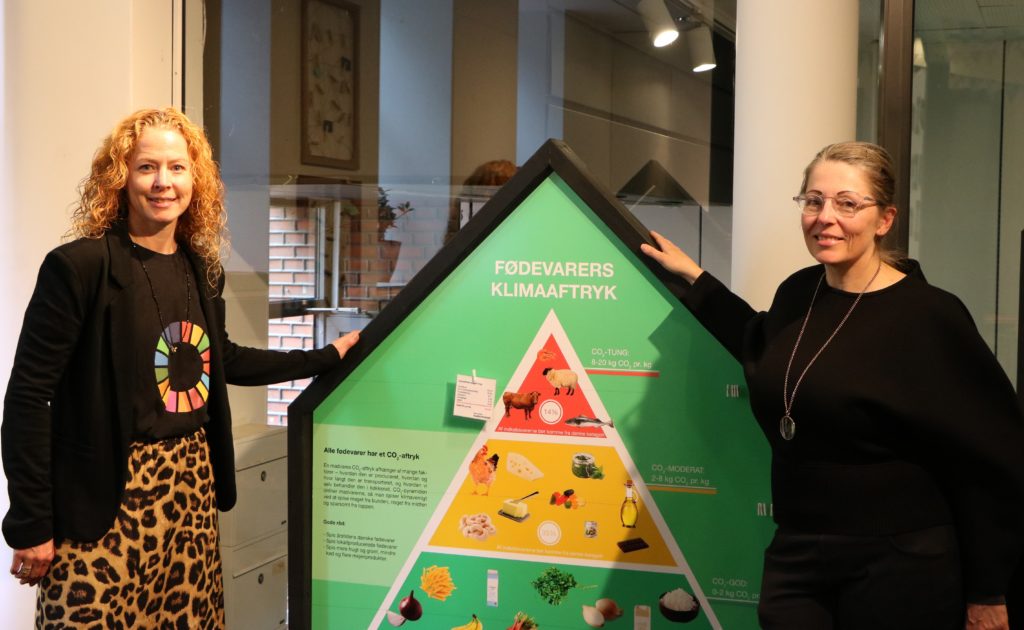
Carbon Footprint Food Pyramid with Danielle Wilde (SDU) and Helle Vilsbøll (City of Kolding) (Credits: City of Kolding)
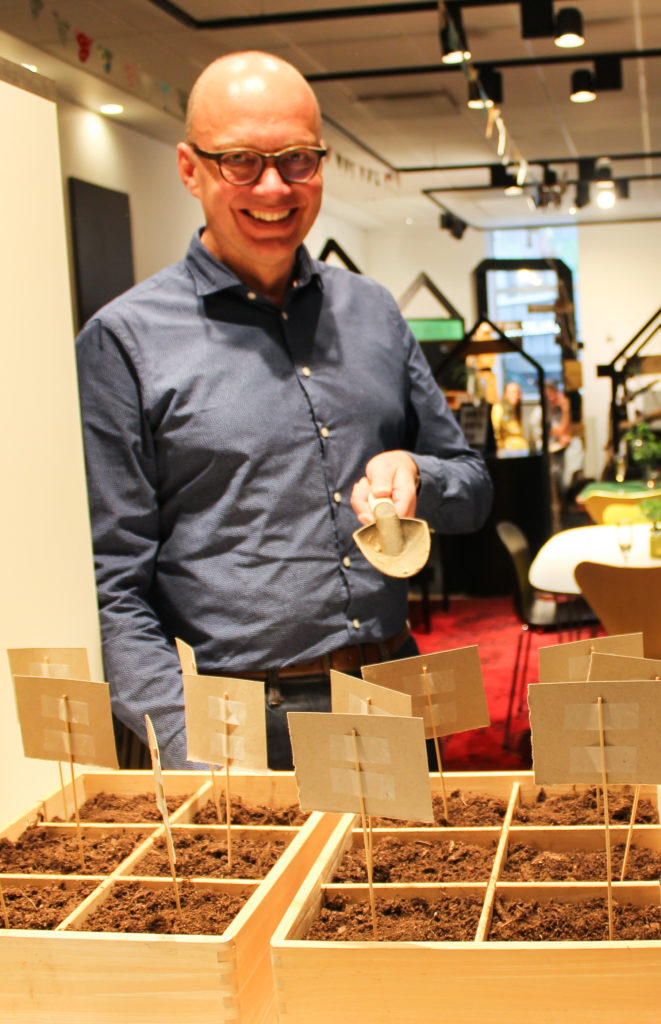
Mayor planting the first seed (Credits: City of Kolding)
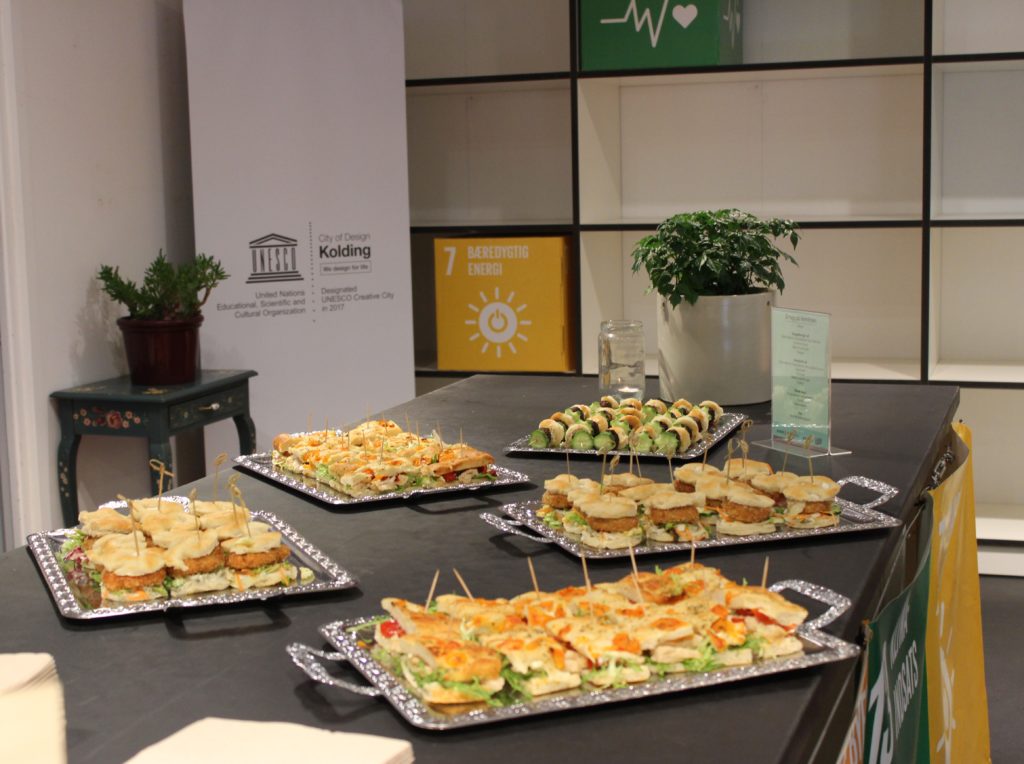
The green plant-based menu at the opening (Credits: City of Kolding)
